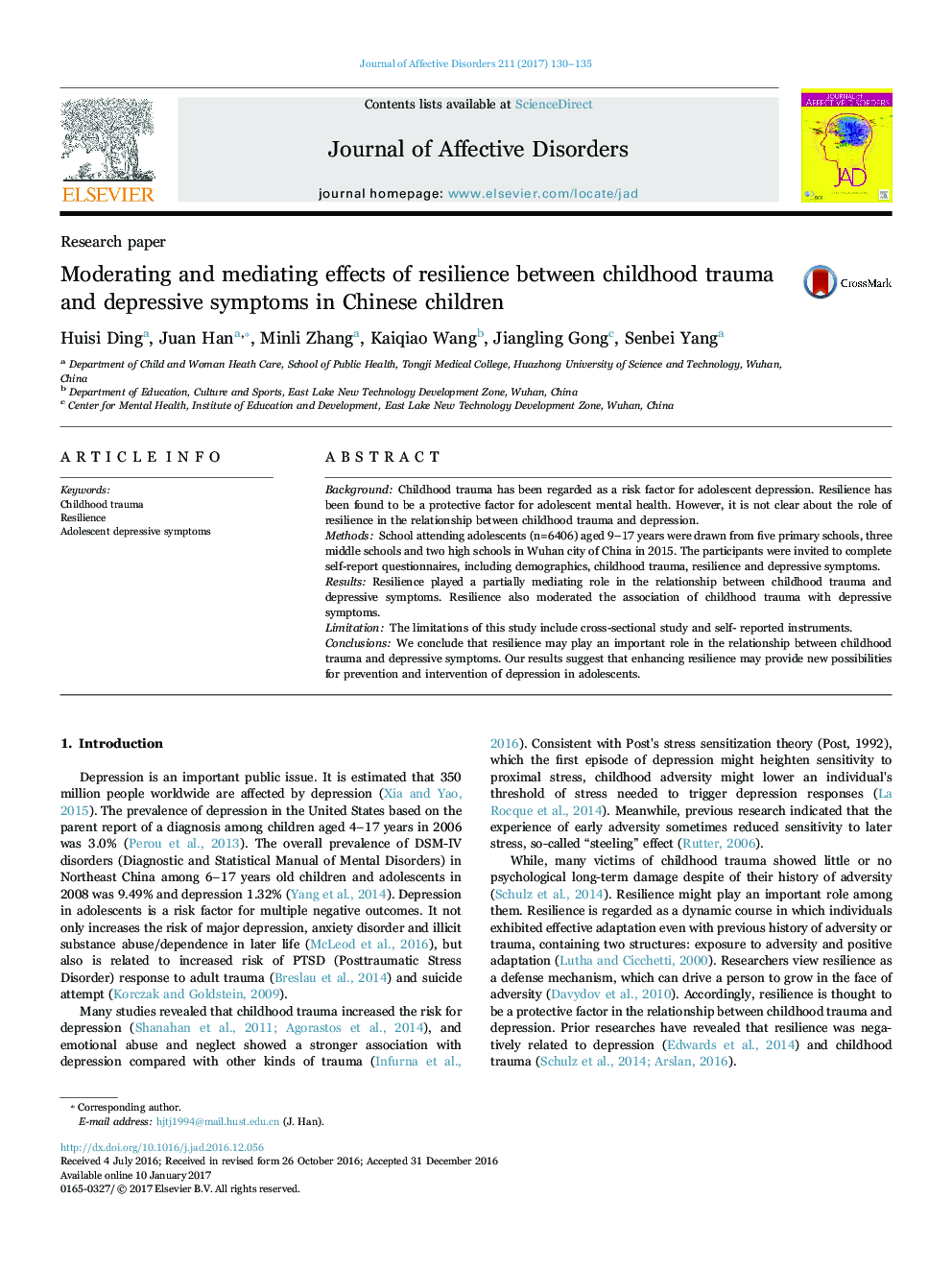| Article ID | Journal | Published Year | Pages | File Type |
|---|---|---|---|---|
| 5721915 | Journal of Affective Disorders | 2017 | 6 Pages |
â¢Resilience played a protective role in the relationship between childhood trauma and depression.â¢Resilience partially mediated the effect of childhood trauma on depression.â¢Resilience also moderated the association of childhood trauma with depression.
BackgroundChildhood trauma has been regarded as a risk factor for adolescent depression. Resilience has been found to be a protective factor for adolescent mental health. However, it is not clear about the role of resilience in the relationship between childhood trauma and depression.MethodsSchool attending adolescents (n=6406) aged 9-17 years were drawn from five primary schools, three middle schools and two high schools in Wuhan city of China in 2015. The participants were invited to complete self-report questionnaires, including demographics, childhood trauma, resilience and depressive symptoms.ResultsResilience played a partially mediating role in the relationship between childhood trauma and depressive symptoms. Resilience also moderated the association of childhood trauma with depressive symptoms.LimitationThe limitations of this study include cross-sectional study and self- reported instruments.ConclusionsWe conclude that resilience may play an important role in the relationship between childhood trauma and depressive symptoms. Our results suggest that enhancing resilience may provide new possibilities for prevention and intervention of depression in adolescents.
